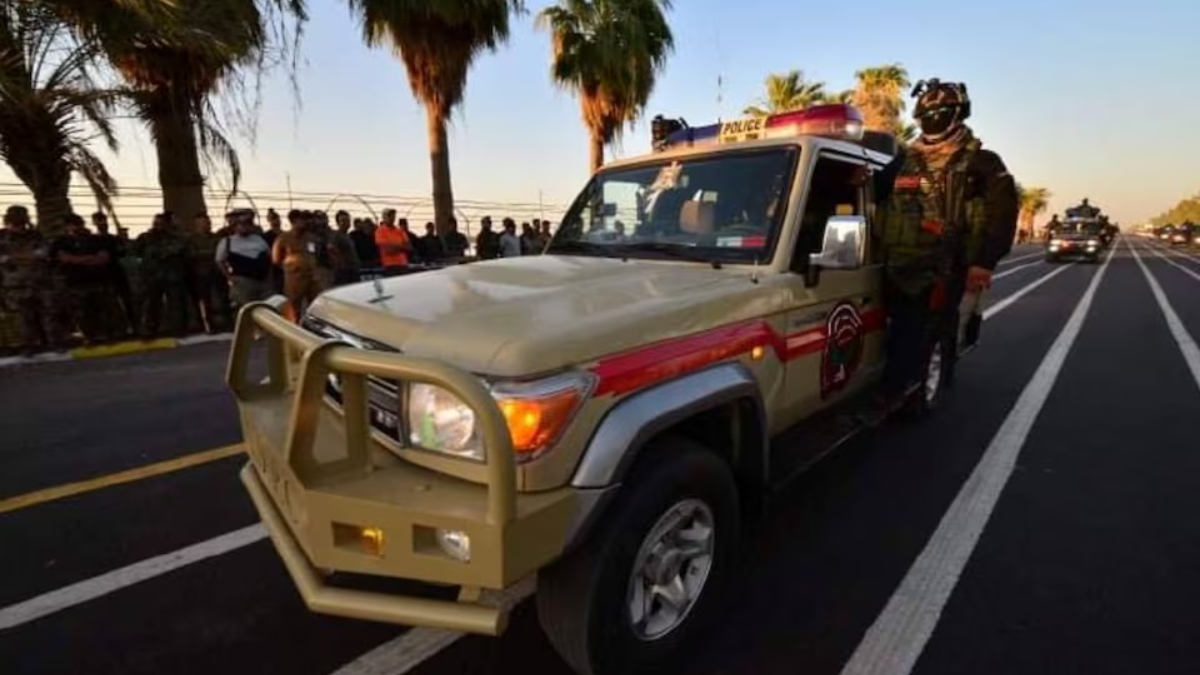Iraq’s Popular Mobilization Forces (PMF), or the Hashd al-Shaabi, an official part of the country’s security apparatus, reported a significant explosion at its Kalso military base late Friday evening. The base, located approximately 50 kilometers south of Baghdad, was subject to an airstrike, Reuters cited two security sources as saying.
The explosion resulted in the death of one PMF fighter and injuries to six others, as confirmed by sources at a hospital in the nearby city of Hilla.
The pro-Iran PMF is a fairly new player in the region. Here’s a look at who they are, their origins, and the influence they have in Iraq.
The origin of PMF
The Popular Mobilization Forces (PMF), or Hashd al-Shaabi, formed as a coalition of primarily Shiite militias in response to the Islamic State’s rapid territorial gains in Iraq, including the seizure of Mosul in 2014. The group was established following a fatwa issued by Grand Ayatollah Ali al-Sistani, calling on Iraqis to defend their country.
Initially, the Iraqi government supported the PMF due to the urgent need for forces to combat ISIS. This support included financial, logistical, and weapons assistance, recognising the PMF’s critical role in halting ISIS’s advance.
Impact Shorts
More ShortsInterestingly, according to Brookings Institute, Sistani later denounced the Hashd al-Shaabi for exploiting the religious decree to swell its ranks. He said the fatwa was originally intended for volunteers to join the official Iraqi armed forces.
Becoming a hybrid paramilitary group
In 2016, Al Jazeera reported that the PMF had an estimated 100,000–152,000 fighters. They were proving to be an invaluable force in the fight against IS, playing a critical role in limiting their territorial gains.
By 2018, the Iraqi government chose to incorporate the Hashd al-Shaabi into its security apparatus, granting them official status as part of the regular army and equalising their pay and benefits with those of other military personnel. The PMF has since become a hybrid paramilitary group—with one foot inside and another outside the state.
How the PMF now operates
According to a report by the United States Commission on International Religious Freedom (USCIRF), across Iraq, numerous PMF factions use violence or the threat of violence to exert control over local populations and influence Baghdad’s political landscape. Tactics such as enforced disappearances, extortion, and physical assaults are frequently directed at Sunni Muslims, Christians, and Yazidis by PMF brigades.
PMF often emphasise its inclusion of religious minorities to mitigate perceptions of sectarian bias. However, although the PMF include some Sunni and Christian brigades, the dominant groups within the PMF are Shi’a.
The PMF’s influence is not just via force, though.
Increasing political influence domestically
In 2018, the PMF made its electoral debut and contested Iraq’s parliamentary elections as a single bloc. They came in second.
In Iraq’s December 2023 provincial elections, the PMF won 101 out of 285 seats. This electoral success was likely due to its extensive control at the local level. The results of provincial elections are significant for the upcoming parliamentary elections in Iraq. The political actors who dominate the provincial councils are bestowed with a wide-ranging mandate and resources. They control budgets, employment of civil servants, contracts, and local security. It empowers incumbents to wield patronage and influence over the electoral landscape, too.
Control over ministries, Supreme Court
The PMF’s influence extends beyond the electoral arena into the broader governance of the country. It indirectly controls several key ministries and has a significant say in the Supreme Court. The apex court has used its influence over the country’s government-formation rules and Kurdish oil exports to quell the PMF’s political rivals.
This involvement in high-level governance mechanisms enables the PMF to shape policy and secure its position within Iraq’s political and security frameworks. The group’s military actions, including its historical role in combating the Islamic State and its ongoing enforcement practices within local communities, further solidify its position as a central actor in Iraq’s national affairs.
Complex relations with Iraq
The PMF has a complex relationship with Iraq. The group was essential for the state in the years that they had to fight with the ISIS.
However, the relationship between the PMF and the Iraqi government has been fraught with tension in more stable times. According to a research paper published in the State Studies Quarterly in 2023, the different factions within the PMF essentially function as various forms of sub-nationalism, which, in varying degrees, challenge the authority of the state. The leaders of these factions use their own unique form of nationalism to gain and retain power.
The Iraqi government has viewed some elements within the PMF as destabilising forces, applying various control measures to manage their influence and actions.
Opposition to the US, West
The PMF’s interactions with the US have also been contentious. Some groups within the PMF, particularly those with close ties to Iran, like Kataib Hezbollah, have actively opposed US and Western presence in Iraq. This opposition has manifested in repeated attacks against US forces. In response, the US has targeted these militia groups in Iraq and Syria, aiming to curb their influence and activities, which are seen as extending Iran’s regional power.
With inputs from agencies


)

)
)
)
)
)
)
)
)



